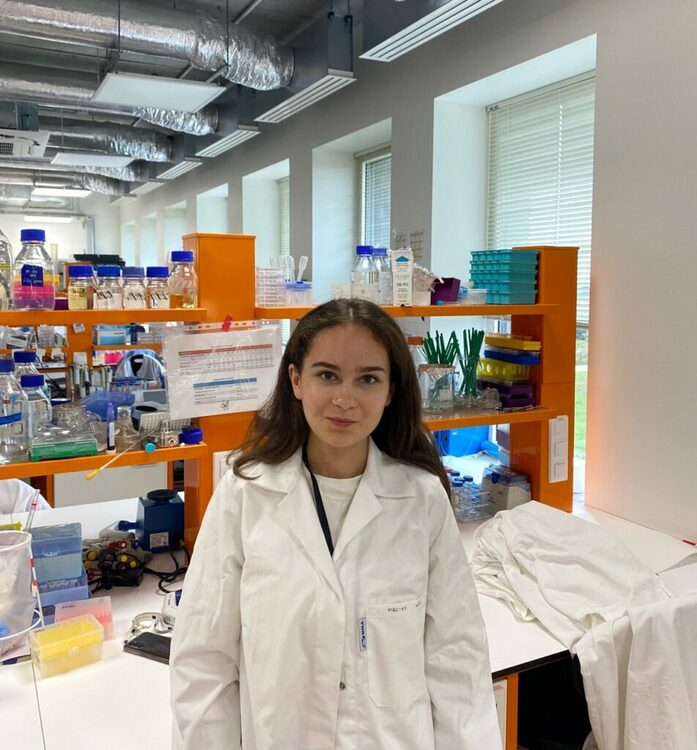
In early September, Nataliшa Nechytailo, a master’s student of the Department of Biochemistry and Biotechnology, began a research internship at the International Institute of Molecular Mechanisms and Machines (IMoL), Polish Academy of Sciences (Warsaw, Poland) under a grant program from EMBO (European Molecular Biology Organization). The student joined a research group led by Dr. Karolina Szczepanowska, head of the Laboratory of Metabolic Quality Control. The laboratory investigates the role of mitochondria in various diseases, in particular how respiratory mitochondrial complexes are controlled, restored and changed, particularly upon exposure to stress. Their findings will help design new therapeutic strategies raised against diseases associated with the energetic crisis in our cells. The research that the student will be doing is also actively conducted at the Department of Biochemistry and Biotechnology of our university, so on the basis of the Polish university, Natalia will be able to hone her skills, learn new techniques that can then be approved at our university, and she will also complete part of her master’s thesis there.
It is worth noting that this is the second grant Nataliia has received to conduct research abroad. Last year, Natalia won a grant from EMBO under the Solidarity with Ukraine grant program for a six-month internship at IMoL in the group of Dr. Karolina Szczepanowska. Within the framework of this grant, Natalia began working on the role of mitochondrial complexes in cancer cells, which became the basis of her bachelor’s thesis. To continue her research, she and her advisor applied for and received a new grant.
Here is Natalia’s comment:
“For one year, I will be doing an internship at the IMol research laboratory in Warsaw. Before that, I worked here for six months with the support of EMBO. Last February, together with my supervisor Karolina Szczepanowska, I applied for a new one-year grant for Ukrainian scientists from EMBO and, after a competitive selection process, was given the opportunity to continue my work in the laboratory.
I will be studying how cancer affects mitochondria, namely the electron transport chain complex I. The main focus will be on genotoxic and proteotoxic stress that occurs in a carcinogenic environment. During research, I will use cloning, immunoprecipitation, Western Blot, BN-PAGE, PCR and other molecular methods”.





